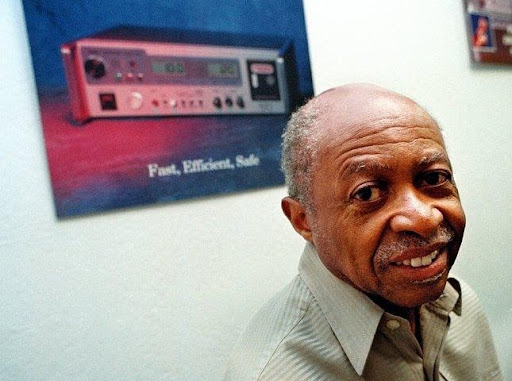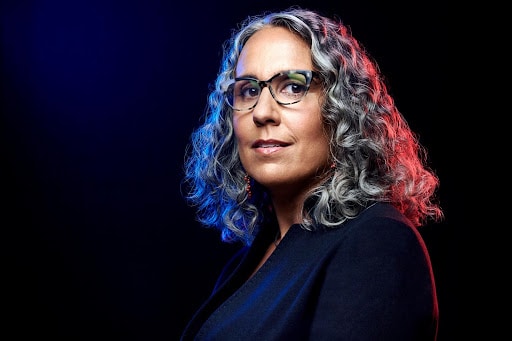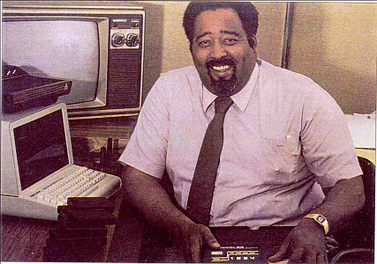
By Barbara Donatien, Senior Consultant, Cyber Risk Advisory
How many Black engineers, scientists, and/or inventors do you know of? I did not learn about black pioneers in technology until I did my own research. When it comes to technology, we usually learn and hear about influential people of European descent, but I could never fit myself into the mold of those narratives. This is solely because it was presented through a lens that I could not personally identify with, and what I learned in school didn’t feature individuals that even vaguely resembled my own experience.
We aren’t usually exposed to the idea that people of color in the United States have had a major impact on society as engineers, scientists, and/or inventors. The contributions to American society by people of African descent is not often spoken about. Today, in honor of Black History Month, let’s meet three Black pioneers in tech, explore why it’s important to know this history, and find out how BARR is leading the initiative to diversify the tech industry.
Black Pioneers in Technology

To today’s iPad generation, accustomed to lightweight portable computing power, the first computer Roy L. Clay Sr. helped build may seem like a relic. Roy L. Clay Sr. is also known as “The Godfather of Silicon Valley.” Clay grew up in Kinloch, Missouri, and was one of the first African Americans to graduate with a bachelor’s degree from St. Louis University in 1951. By the late 1950s, Clay had taught himself how to code since universities did not have computer science programs. He helped launch Hewlett-Packard’s computer division by the late 1960s and helped diversify the workforce in the tech industry by committing to recruitment and talent development.

Lisa Gelobter is one of many modern Black innovators in technology that pioneered a lot of the internet technology we use today. We all love and use animated GIFs on the web and we have Lisa Gelobter to thank for this—not only did she pioneer the genesis of animation on the web, but she also pioneered technology like Shockwave, the emergence of online videos via Brightcove, and was a member of the senior management team for the launch of Hulu.

Do you like playing video games? You have Jerry Lawson, a gaming pioneer, to thank for that. He was raised in Queens, New York City, and never graduated from college. Lawson embraced being an anomaly in tech and by the 1970s he led a team of engineers that developed and released the first removable video game cartridges. You might not know his name but he is well-recognized in the gaming industry and earned a spot in the World Video Game Hall of Fame.
Why is Black History in Technology Important?
History is important because it reminds us of where we have been and lessons we can learn for the future. Black history is a reminder of how far the black community has come in the face of adversity. In 2021, a study conducted by Wiley found that nearly 70 percent of U.S. businesses reported a lack of diversity in their tech workforce tech and cybersecurity industry.
Diversity is good for every environment, but it’s particularly important in the workplace. It can bring different perspectives, ideas, and exposure. However, per Francisco DeArmas, a Forbes Council Member, “Simply having ambitious goals and a willingness to share and improve won’t drive tangible diversity and inclusion progress.” It’s time to close the gap in this industry and this is an initiative BARR Advisory has implemented.
How is BARR Advisory Working to Improve Diversity in Tech? And How Can You Join Us?
Looking to hire minorities can help open important discussions that lead to thought-provoking questions among other tech companies such as:
- What can we do to contribute to breaking stereotypes?
- How can we have a more diverse workforce?
- How can we convey a message that diversity and inclusion is more than just a value at our company?
BARR Advisory has five core values: unparalleled support, transparent, inclusive, simplicity, and future ready. Inclusiveness is a value that has always spoken to me. BARR values diversity not only of people but also of ideas.
As a current senior associate here at BARR, I appreciate and see how “inclusive” is more than just a value, it’s a practice. BARR has worked on breaking down barriers so more minorities can start a career in cybersecurity via non-traditional talent programs, like Apprenti. BARR also partners with educational institutions, like Donnelly College, to showcase the cybersecurity industry to students who may not otherwise have ever considered it as a career option.
Here are four quick tips on how to diversify your workforce:
- Focus on company culture
- Create a diversity hiring strategy
- Diversify your network
- Develop diverse talent
Many Black pioneers in history have gone unheard due to inequality, oppression, and racism. It is important to ensure that all people, no matter their race, religion, or sexuality, are heard and represented. We live in a world with a monumental blend of identities and these voices must be acknowledged. Join BARR in this initiative and let’s all work together toward a state of solidarity and equality in tech.
You can read more about BARR’s commitment to diversity here. Contact us to learn more about how you can implement diversity and equity in hiring.

Meet the Author: Barbara Donatien
As a senior consultant, cyber risk advisory, at BARR, Barbara is responsible for planning, executing, and delivering various audits and risk assessments for clients in highly regulated industries. Prior to joining BARR, Barbara worked as a senior associate in KPMG’s Audit and Assurance Practice. She has a Bachelor of Science in accounting and information systems from Duquesne University.